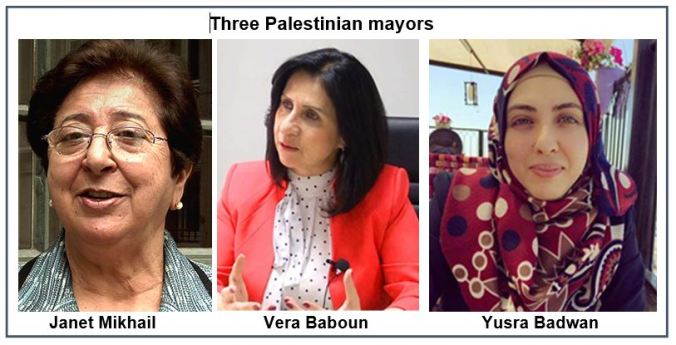Oscar Wilde’s imperious Lady Bracknell, being both fictional and approaching her 20th decade, was rather ruled out from chairing the Grenfell Tower fire inquiry, despite her familiarity with certainly the posher parts of the Royal Borough of Kensington and Chelsea. We can surmise, though, her views on being earnest as a quality in political leaders: important, yes; sufficient, no.
We can also imagine her pronouncement to Jack Worthing, discovered as a parentless infant in a handbag in a London railway station cloakroom. For K & C council to lose one leader, whose chief merits seemed to be earnestness plus length of council service, may be regarded as a misfortune; to replace him with another, with apparently even fewer compelling qualifications, looks like carelessness.
The council’s early failures even to recognise the scale and nature of the crisis it faced have been well aired, including in these columns, culminating in the peremptory, and probably costly, dismissal of the council’s Chief Executive by Communities Secretary, Sajid Javid. Almost inevitably, though, further heads seemed bound to – and continue to – roll, first being that of the Leader, Nicholas Paget-Brown. 30-plus years as a K & C councillor, council leader for four, former cabinet member for leisure services, he lacked, unfortunately, first-hand familiarity with tower block building regulations, polyethylene-filled aluminium panel cladding, and all the other techie stuff on which the nation’s chat show presenters are now such aggressive authorities.
But Paget-Brown was visibly there, soon after the fire, being earnest and contrite. Unlike his deputy, who had (and, according to the council’s evidently traumatised website, still had, three weeks after his resignation) “specific responsibility for promoting better housing for residents”. Despite having overseen the Grenfell Tower refurbishment and prettification, at the crucial time he appeared to keep even his earnestness to himself.
In accordance with our rather flexible notions of electoral accountability, the resignation of both senior politicians was deemed necessary, if not in any practical way beneficial. Hence the election as new council leader of Elizabeth Campbell – from one of the more affluent areas in the south of the borough, a cabinet member at the time of the fire, and who couldn’t remember, when first asked, exactly whether or not she’d ever entered a residential tower block.
Like her predecessor, Campbell was hugely apologetic and earnest. But her media performances did seem to highlight the basic question of what we can reasonably expect of our councils’ elected representatives – as opposed to their paid, trained, specialist and supposedly expert officers – in our ever-larger scale, overstretched, underfunded, centrally dominated, under-respected system of so-called local government.
Kensington & Chelsea is, excepting the City of London, the smallest London borough by population. Yet its councillors, like Campbell and Paget-Brown – and obviously even more so those of our over 120 larger urban authorities – have somehow to attempt personally to represent and respond to the needs of between, on average, four times as many residents (Belgium, Spain) and over 20 times (France) as their counterparts in other major Western European countries.
Faced with a technical and human disaster on the scale of Grenfell Tower, could any elected local political leader(s) have the combination of personal attributes, training and experience to be able to react meaningfully, and even conceivably make a substantive contribution to its prevention?
It’s largely a rhetorical question – but not entirely. For, almost by chance – well, in writing a paper for the recent IASIA-MENAPAR Conference in Ramallah – I came across one who might have fitted K & C’s recent personal and political requirements remarkably closely. I refer to the recently elected mayor of the Palestinian West Bank town of Azzun – similar in area to K & C, but with a much smaller population, and a necessarily circuitous two-hour road journey north west of Jerusalem.
The new mayor is considerably younger than K & C’s leaders, but compensates with a CV they – and possibly even some officers – would have given much for in recent days: an electrical engineering degree, work as a contracting engineer in Jericho and as a supervisory engineer for CHF (Cooperative Housing Foundation) International, interspersed with volunteer social work back in Azzun. Oh yes, and I nearly forgot, Mayor Yusra Mohammed Badwan is a woman: a 25-year old, hijab-wearing Muslim woman, whose Arabic would also have come in handy, given its reputation as Kensington’s second language.
Badwan is, of course, highly unusual, but not unique. Palestine’s conservative and patriarchal culture makes for an even more male-dominated and sexist local government environment than that in England and Wales pilloried in this month’s Fawcett Society’s Local Government Commission report. Yet, against the odds, it has produced some exceptional women mayors – and certainly more than resulted from our own metro-mayoral elections (which formed half the focus of my conference paper: ‘If Palestine can elect women mayors, why do English city regions find it so hard?’).

They include Janet Mikhail, a Roman Catholic, who in 2005 assembled a remarkable ‘Ramallah for All’ Christian-Islamist coalition to defeat Fatah, the dominant West Bank party, in the Palestine National Authority’s administrative capital. And, more recently, Vera Baboun, a former university professor, who was the (necessarily Christian) Mayor of Bethlehem until her also multi-faith independent alliance was defeated in this May’s elections, incidentally depriving her of the thrill of hosting President Donald Trump on his first overseas jaunt.
But back to Badwan, clearly undaunted by her new role: “mayors have many tasks – developing the town by organising housing projects, establishing public facilities such as parks and libraries, paving roads, improving services such as sanitation and water, and making sure residential neighbourhoods stay clean.”
Her biggest and permanent challenge, though, is “the Israeli occupation”. Like so much of the West Bank which under the 1993 Oslo Accords was to be “gradually transferred to Palestinian jurisdiction”, Azzun has been under full Israeli military and civil control – or, as Badwan puts it, “Israeli siege” – throughout her life.
It’s a different sort of torment from Grenfell Tower, but, as was depressingly illustrated in the recent Commons debate, social media users can be careless of such subtle details. So, if your Arabic is up to it, check out Azzun municipality’s Facebook page, and you may still find: “Are there no men left in Azzun? Why did you accept a woman? The great town of Azzun has become a joke.” And from another charmer: “A people that has allowed a woman to rule will never succeed”.

Chris Game is a Visiting Lecturer at INLOGOV interested in the politics of local government; local elections, electoral reform and other electoral behaviour; party politics; political leadership and management; member-officer relations; central-local relations; use of consumer and opinion research in local government; the modernisation agenda and the implementation of executive local government.
Pingback: An other look at the events of today by one of our magazines – Belgian Ecclesia Brussel – Leuven
Pingback: Prime Minister, remember when you weren’t hell-bent on infantilising local government? | INLOGOV Blog